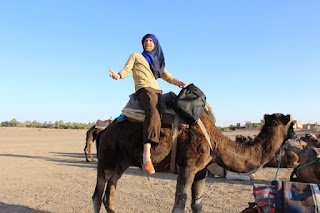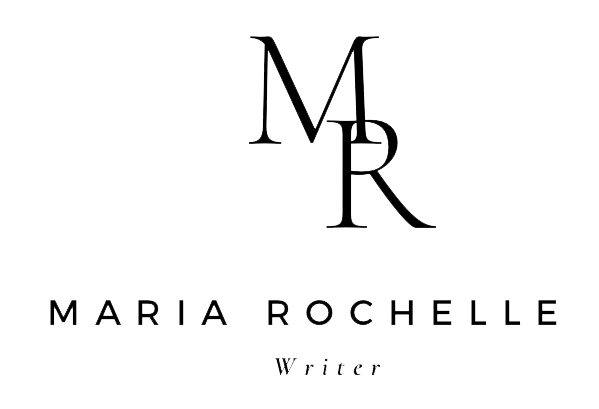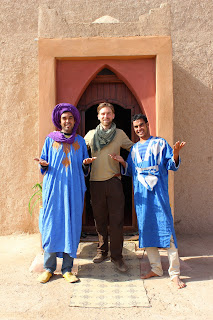 |
| Nicholas on a camel…. |
Nicholas Andriani has a desire to see every inch of the planet and he tells me a little of what he has seen and traveled to in our interview. In 2012, he sold his car and bought a way ticket to Africa and he has got quite a tale to tell (forgive the pun). He also shares some of the most beautiful pictures of his travels on his Instagram account. Don’t worry, I shared his link to Instagram at the bottom of the interview, so you need to check it out.
From what I’ve read, you love to travel so you’re what someone might call wanderlust. Tell me how you decided to leave the comforts of your home and sale your car and hop on a plane to Morocco.
It began with a spark, a feeling of disenchantment. From an early age I felt this overwhelming sense that I would one day need to prove myself worthy to be a part of this world. I had to know if I could confront the unknown and be ok with the unknowing. In many ways this came from a strong feeling of self-doubt and inadequacy. At the same time I knew there had to be more to life than striving for the American Dream, something deeper and more holistic. Then, the opportunity presented itself. As my studies were coming to a close I received an offer to work on an excavation in Jordan. At the time I thought “oh why not just fly to Morocco and walk to Jordan by whatever means necessary…” Foolish, naive boy! Foolish as it was, the pieces just folded together from there.
I found this intriguing in your “about” section on your website: “I set out to get to the bottom of who I was, who I am and what I could do to be a part of the larger picture.” In your travels, did you get to the bottom of who you are?
You know… I’m still in the process of figuring that one out! In a sense I certainly was able to overcome all those insecurities I had initially felt, but this “awakening” came with a whole new bag of questions that I’m just beginning to answer. It’s very therapeutic to arrive at a place where you have no history, no relation to the culture, no understanding of the social norms and to work your damnedest to get by. You can’t help but build a stronger relationship with yourself when it’s so difficult to relate to others around you.
Do you have a favorite country so far and if so why?
Easy. Morocco. Hands down. We’re talking a Mediterranean country with African sensibilities. Where harvests occur year round, the climate is mild mannered and the pace of life remains in tune with the heartbeat of the natural world. That is to say, siestas are fully operational and recreational time is very important. Many of what the West calls “Old World” or the more ethnocentric term “less advanced” regions are, to me, the most advanced. These are the places in which I find generosity dished out liberally to strangers where humanity remains more important than profit or the material. People hug and kiss and hold hands and are quick to smile. This is where I learned to have faith in the great unknowing of life and to embrace the strange, to question myself before others. It’s where fire breathers dance until dawn and Medieval cities thrive (Fez). It’s just so bloody romantic. The language, a marriage of Arabic, French and the local Amazigh is sexy as it is poetic. All at once oases villages operate on centuries old customs while Casablanca and Marrakech are relatively equipped to handle the demands of a modern world.
Was there one country that was the most challenging to travel in?
That would have to be Israel. I was detained and heavily interrogated upon entering the country and then strip-searched and detained again upon leaving. I don’t speak a lick of Hebrew where as I had been getting along for a month on Arabic, so there was a definite dash of culture shock that was all my doing. On the flip-side I had the extreme good fortune of meeting an Israeli reporter while taking a bus through the Negev. He allowed me to tag along, conducting interviews outside the perimeter of Gaza. This was eye opening, to spend time with an Israeli who is currently fighting for a two-state solution. While difficult to move through, many checkpoints and a load of questions to answer, Israel may easily be the most rewarding. As a product of this, I don’t feel that people should dish out opinions on the subject without having been there on the ground (without meeting the people on both sides of the fence and without having falafel in Jerusalem.)
I’m looking forward to your memoir “In Another Country”. Tell me a little of what to expect.
Thank you. I’m so glad to hear that. ‘In Another Country’ is an intimate and brutally honest story— with most of the text coming from private journal entries. It’s a poem to lovers had and lovers unknown. An account of life on the road across exotic locales in which nothing is off topic, food, wine, architecture, drugs, Islam, my own insecurities, sex and archaeology… You could almost say it’s a crescendo bridging old and new worlds together through the eyes of a sentimental wanderer. A preliminary reviewer drew up a comparison between ‘Eat, Prey, Love’ and “The Sun Also Rises…”
The ladies are going want to know if you had any romance while visiting the countries. Were you lucky in love while traveling?
What a question! Without saying too much, absolutely. There was a point in Spain where I felt a heavy sense of loss and hopelessness. It was like this trip to Spain was superfluous, a waste of time, a distraction from the real world. My finances were drying up fast, revolutions were breaking out in Cairo (where I would be headed in two-weeks) and Kingdoms were being toppled in the Middle East. On top of all that emotional strain I was trying to balance a long-distance relationship that didn’t appear to be working out. Around that time I found myself melting into the vibes of Southern Spain with its Moorish architecture, gypsy culture and bohemian vibes. It was then that I met a lovely Belgian artist and wound up delaying the rest of my trip to spend extracurricular time with. Let’s just say she has a significant role in the book. I’m a lover and a sappy romantic on the hunt for a muse to inspire the next piece.
Are you an archeologist as well? What do you love about that? I personally have been fascinated with archeology and history as well.
That’s right. I studied archaeology in college with a focus on pre-Islamic Arabia. Most of my research has been centered around a tribe known as the Nabateans. They were somewhat of a big deal, though short-lived, in what is now Southern Jordan/Northern Saudi Arabia. Yet, relatively unknown, they are famous for having constructed the rock city of Petra. It’s quite exciting to be alive at a time in history when the world is more or less open to the movement of ideas and people. This has been huge for archaeologists, whose work it is to piece together fragments of the human story. History is fascinating in that most often we’re only getting one side of the story. I want to come at the world from every perspective possible. If history is written by the victors, we need to consult the “losing party.” On one hand it feels stable, concrete while on the other it feels fluid and susceptible to manipulation. That’s why it’s more important than ever to paint an objective view of our collective histories. All that aside, let’s be real here because we all know that 99% of why anyone becomes involved in archaeology is that 1% chance of uncovering lost tombs, caches of gold, treasure maps and mummies — that’s all in the realm of possibility! However, to be honest, I haven’t been active since 2012, choosing to focus my time on other projects, such as “In Another Country.”I have serious plans to get back into the field within the next few years.
I love your sketchbook on your site. I imagine your travels inspired the artwork, but what
inspired you to draw or sketch to begin with?
inspired you to draw or sketch to begin with?
Thank you. Well, that would be tough to say as I’ve been sketching since time immemorial. Drawing has been a way to help me to understand the world at large and to fully take in my surroundings by “recreating” them in that way. At this time what compels me to break out the pencil or brush are people/places with strong emotional histories — historic cities, quirky architecture, alien landscapes. I do pull a great deal of influence from the artists such as the David Roberts and avant-garde wilderness of Picasso and Salvador Dali.
You’re in the process of opening an ETSY account to sell some of your prints. Some of the proceeds will go to the “International Rescue Committee”. Please tell me a little about the rescue committee.
The IRC follows a strict regimen of sending aid to conflict zones as soon as they’re needed and have a habit of remaining on the ground until their work is complete. That could be a war zone, a natural disaster or even a poverty stricken community. The IRC comes in, provided healthcare, education and
restorative programs to allow communities to support themselves once again, providing families with a second chance at life. I met an advocate for the IRC while working in Jordan. He had just come out of Syria and told the most compelling, positive stories about his life in the service. They’re not affiliated with any political part or religious agenda, which is very important to me.
restorative programs to allow communities to support themselves once again, providing families with a second chance at life. I met an advocate for the IRC while working in Jordan. He had just come out of Syria and told the most compelling, positive stories about his life in the service. They’re not affiliated with any political part or religious agenda, which is very important to me.
Tell me three fun facts about Nicholas.
I’m a has-been thespian. In high school nothing mattered more than theatre. Initially, it was a ruse to be around the girls. What a high it was to be on stage.
I’m terrible with directions (worse at problem solving)! I may be unorthodox but when it comes to assessing problems, even simple puzzles, I struggle to think “outside the box”
I nearly abandoned my dreams for a chance at love in Granada.
What’s your favorite book and why?
—Let’s be cliché (and honest) and say “On the Road”. It’s just so damn beautiful. A common attribute of Kerouac’s writing is his ability to make the words pop as if the keys of a pianist, the horn of a raging saxophone. The language is lively, prosaic and always on the move. This was the first piece I read that made me think “damn… this is what I’m meant to do.” I’m just now getting ready to dive into the recently released “Original Scroll” which is an unedited, early draft which poured out as a stream of consciousness. It may not be the greatest story ever told, but it’s certainly the greatest execution ever performed.
Describe in one word how it feels to be a writer.
Intoxicating. In the best and worst sense. …An exhilarating marriage between elation and dread.
Who are your biggest supporters in your line of work?
Family goes a long way. My girlfriend has been the greatest supporter emotionally. I’ve found a surprising amount of support on social media (Twitter, Instagram) where the literary communities create bonds thick as blood, always looking out for one another. There are many reasons to be pessimistic about the modern world as a writer, yet I believe there are more opportunities to thrive. Especially since we all look out for one another.
Where do you see yourself in a year?
In Another Country, after having an army publishing houses fight for the rights, will have settled on a book deal that will sustain further projects in the future. That sounds like a great plan. Otherwise, I’m very open to the unknown world that lies ahead.
Follow Nicholas on Instagram:
https://www.instagram.com/nicholasandriani/

